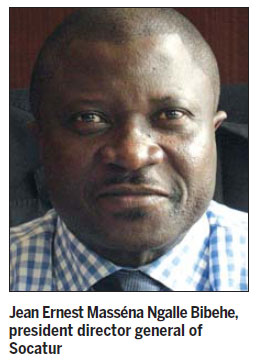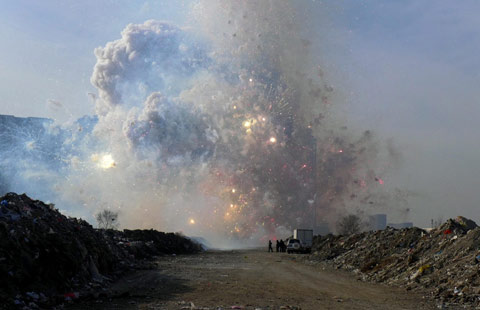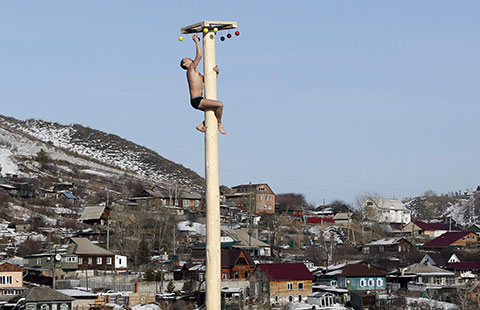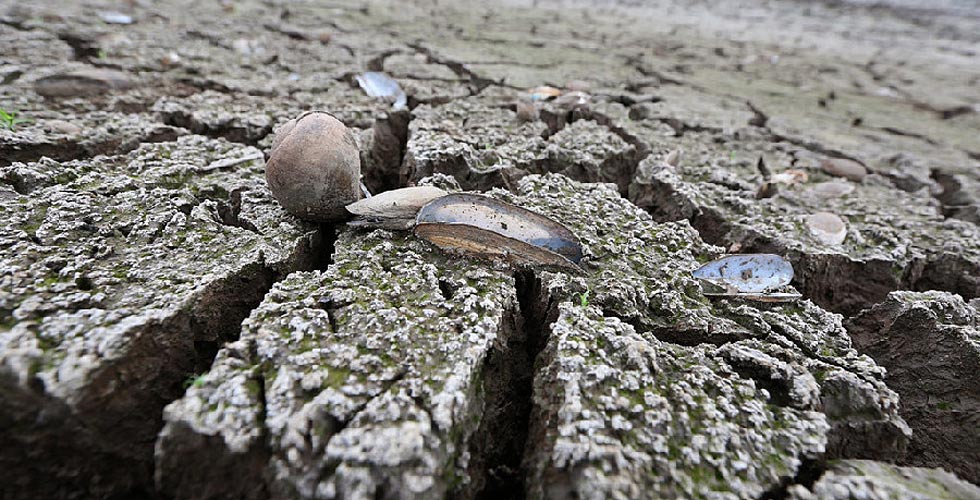Local firms help build a 21st century nation
Updated: 2012-09-25 08:06
(China Daily)
|
|||||||||||

Diversification is the watchword for the companies making Cameroon modern
A host of ancillary companies are lining up to engage in Chinese investment in their development projects.
Gulfin, a major transporter of bulk liquids, is one of them. As part of its diversification strategy, the company is planning to open at least 10 new gas stations by the end of next year.
Deputy Director Edouard Edmond Bateky said: "We try to develop partnerships to cover different geographical areas with other recognized transport companies. We thus offer our ships to major and other international traders to transport from and to Africa, Europe and the Americas.
"We are ready to develop a partnership with China in particular and Asia in general by signing a contract of affreightment for the transportation of crude oil, the main advantage being that our ships are based in the Gulf of Guinea, near large deposits. Regarding our distribution network, we seek partnerships on lubricants, with foreign companies willing to expand in Africa.
"We can offer them a network that is constantly improving to meet international standards and the maximum requirements in environment, safety and hygiene."
Tradex, Cameroon's crude oil and petroleum products export and trading company, boasts a network of 35 service stations across the whole country, and a market share of nearly 10 percent. It demonstrates the best marketing efficiency ratio per station in Cameroon and is a leading importer of petroleum products.
A shining example of a forwardthinking company, Tradex is trying to diversify its offering to cover all aspects of the distribution.
"Tradex's strategy relies on expanding our network, improving our services and innovating our products," general manager Perrial Jean Nyodog explained. "Naturally, our sub-regional expansion remains a pivotal axis of development. We watch every opportunity that arises in the sub-region to enhance our network and diversify."
On the move
Fast-growing transport company Socatur is also playing a strategic role in Cameroon's modernization. Established in 2001, it operates a public transport network in Douala, the country's largest city with a population of around two million.
In the early days, it had a fleet of just 15 buses, but has grown exponentially and now operates around 100, all of them third generation. As part of its ambitious expansion program, Socatur's management is now looking to partner with Chinese operators and build an assembly line for vehicle production. As well as reducing production costs, it would ease access to spare parts and technical assistance.
Jean Ernest Massna Ngalle Bibehe, president director general of Socatur said: "We need 30 lines to cover the entire network of Douala, but to do so we need a fleet of 300 buses. This will take two or three years at least, but that would enable us to cover the entire city. "After this, we intend to deploy our services to other cities in Cameroon and serve as a focal point in the sub-region."
The company, which is 67 percent privately owned, is a member of the International Association of Public Transports and the African Union of Public Transport.
"We have reinvented urban transportation. We contribute to improving the living conditions of the local populations, and facilitate urban mobility," Ngalle Bibehe says.
"Today Socatur employs 300 people, it is an integrated center with 100 buses, including 40 in permanent operation, and the rest make up the technical storage. To operate a bus, you need between 6 and 8 people. So if you buy 100 buses, you will recruit 700 people. If you buy 300, you'll recruit about 3,000 people. In turn, these people support entire families with their wages, so the list of social benefits is long.
"Our main target is primarily the most disadvantaged population, that is to say pupils, students, people on low incomes. We have an eminently social role to play, and believe that urban mass transportation in a city like Douala must grow, to develop the country."
Expanding infrastructure
The fast pace of construction in Cameroon has called for robust standards and procedures to be drawn up. With its broad expertise, well-trained engineers and strong global network, Labognie is the leading geotechnical research institute in this field and as such is tasked with quality control for structures such as dams, bridges and roads.
"We also deal with other activities, like the supervision of public works for new structures and upgrades, and the inspection of finished works, to verify compliance," said Philippe Nouanga, general manager.
Meanwhile, Labognie's counterpart, Matgnie is responsible for the acquisition, maintenance, renewal and rental of equipment for the construction of all roads. In December 2011, it received brand new civil engineering materials thanks to Chinese cooperation, enabling its continued contribution to progress.
"We are working with several of the key ongoing projects," said Niwa Long Othon, general manager.
Created in 2007, Cam Iron SA is the country's leading iron ore mining company. Ninety percent owned by Sundance Resources Ltd, the company plans to develop integrated mine, rail and port projects.
"The one thing that is missing in Cameroon is infrastructure," Chairman Giulio Casello explained. "Our Mbalam project has the power to unlock the region and create much value locally as we propose to build rail and port infrastructure for the export of iron ore from the region."
One of the best iron ore assets in Africa, the project aims to mine 35 million tons per annum of direct shipping ore-quality High Grade Hermatite for 10 years at an estimated operating cost of $21.2/ton. The second stage will see the continued 35 mpta of concentrate product from Itabirite for a further 15 years, at an ETO of $40/ton.
The project, which is expected to last between 40 and 50 years, has a net present value of $4 billion over 25 years with a payback period of between four and five years.
InFocus provided the story
(China Daily 09/25/2012 page19)
Hot Topics
We present some of the most striking images from major stories around the world in the past week.
Editor's Picks

|

|

|

|

|

|






